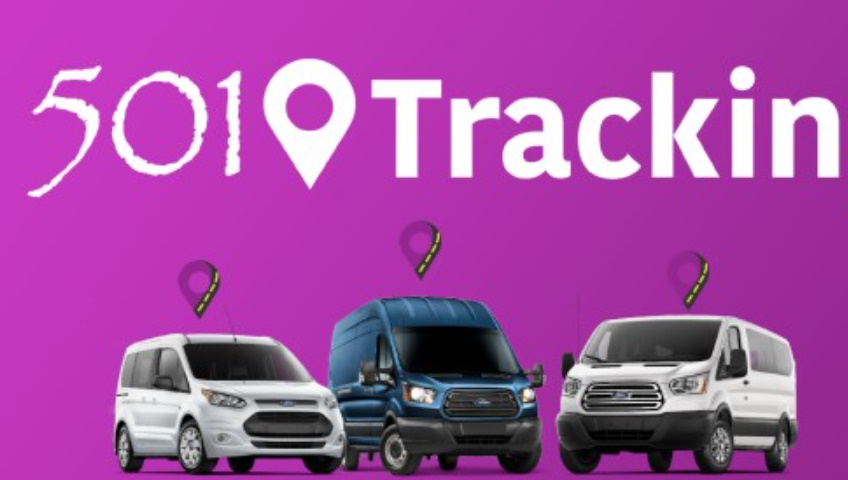501 cargo tracking
Introduction to 501 Cargo Tracking
Cargo tracking is the process of monitoring and managing the movement of goods from one location to another. It is a crucial element in global supply chains, ensuring that products reach their destinations safely, on time, and in the expected condition. The “501 Cargo Tracking” system represents an advanced and comprehensive solution for modern cargo management. This system leverages cutting-edge technologies to provide real-time tracking, enhanced security, and efficient logistics management, making it an indispensable tool for industries ranging from logistics and shipping to retail and manufacturing.
Evolution of Cargo Tracking Systems
The concept of cargo tracking has evolved significantly over the years. Initially, tracking was done manually through paperwork and phone calls. However, with the advent of technology, cargo tracking systems have become more sophisticated. The introduction of GPS and RFID marked a significant leap in the field, allowing for automated and real-time tracking of goods. The 501 Cargo Tracking system is the culmination of these technological advancements, offering a seamless and efficient tracking experience.
How 501 Cargo Tracking Works
The 501 Cargo Tracking system operates through a combination of GPS, RFID, and IoT technologies. GPS (Global Positioning System) provides the geographical location of the cargo, while RFID (Radio Frequency Identification) tags are used to identify and track items through radio waves. IoT (Internet of Things) further enhances the system by enabling devices to communicate and share data autonomously. Together, these technologies allow for real-time tracking of cargo, ensuring that stakeholders can monitor the movement of goods at every stage of the journey.
The system integrates with existing logistics and enterprise resource planning (ERP) systems, providing a unified platform for managing and tracking shipments. This integration ensures that all relevant data is captured and analyzed, enabling companies to optimize their supply chain operations.
Features of 501 Cargo Tracking
The 501 Cargo Tracking system is packed with features designed to improve the efficiency and security of cargo management. Some of the key features include:
- Real-Time Tracking: The system provides real-time updates on the location and status of cargo, allowing companies to monitor shipments from departure to delivery.
- Notifications and Alerts: Users receive instant notifications and alerts if there are any delays, deviations from the planned route, or potential security breaches.
- Data Analytics and Reporting: The system offers powerful analytics tools that help companies analyze tracking data, identify trends, and generate detailed reports for decision-making.
Benefits of 501 Cargo Tracking
The benefits of implementing the 501 Cargo Tracking system are manifold. First and foremost, it significantly enhances the security of shipments. By providing real-time monitoring and alerts, the system reduces the risk of theft, loss, or damage to cargo. Additionally, the system improves operational efficiency by streamlining the tracking process and reducing manual intervention.
Cost savings are another significant benefit. By optimizing routes, reducing delays, and preventing losses, the 501 Cargo Tracking system helps companies save money on shipping and logistics. Furthermore, by providing accurate and timely information to customers, it enhances customer satisfaction and loyalty.
Industry Applications of 501 Cargo Tracking
The 501 Cargo Tracking system is versatile and can be applied across various industries. In logistics and shipping, it is used to monitor the movement of goods across different modes of transportation, including sea, air, and land. In manufacturing, the system helps track the movement of raw materials and finished products within the supply chain. Retailers use the system to manage inventory and ensure timely delivery of goods to stores or directly to customers. The system is also essential in e-commerce, where it ensures that online orders are tracked and delivered on time.
Challenges in Implementing 501 Cargo Tracking
Despite its benefits, implementing the 501 Cargo Tracking system comes with its challenges. One of the primary challenges is the technical complexity involved in integrating the system with existing infrastructure. Many companies still rely on legacy systems that may not be compatible with modern tracking technologies, requiring significant upgrades or overhauls.
Cost is another challenge, especially for small and medium-sized enterprises. While the system offers long-term savings, the initial investment can be substantial. Companies must carefully evaluate the cost-benefit ratio before implementing the system.
Case Studies of Successful 501 Cargo Tracking Implementation
Several companies have successfully implemented the 501 Cargo Tracking system, yielding impressive results. For example, a global shipping company used the system to track its fleet of cargo ships, resulting in a 20% reduction in delays and a 15% decrease in operational costs. Similarly, a large-scale retailer implemented the system to manage its supply chain, leading to a significant improvement in inventory management and customer satisfaction.
Comparing 501 Cargo Tracking with Other Tracking Systems
The 501 Cargo Tracking system stands out from other tracking systems due to its advanced features and integration capabilities. Traditional tracking systems often rely on manual updates or basic GPS tracking, which can be inaccurate or delayed. In contrast, the 501 system offers real-time tracking, automated alerts, and comprehensive analytics, providing a more reliable and efficient solution.
When compared with modern competitors, the 501 system also holds its own. While some tracking systems offer similar features, the 501 system’s ability to integrate seamlessly with other enterprise systems and its focus on data analytics give it a competitive edge.
Future Trends in Cargo Tracking
The future of cargo tracking is poised to be shaped by several emerging trends. Advancements in technology, particularly in AI and machine learning, are expected to enhance the predictive capabilities of cargo tracking systems. This means that companies will not only be able to track where their cargo is but also predict potential delays and optimize routes in real-time.
Additionally, the increasing use of IoT devices will lead to even more granular tracking, allowing companies to monitor individual packages or items within a shipment. Predictive analytics will play a larger role, helping companies make data-driven decisions to further optimize their supply chains.
Regulatory and Compliance Aspects
Cargo tracking systems, including the 501 Cargo Tracking system, are subject to various global regulations and industry standards. These regulations are designed to ensure the safety, security, and efficiency of cargo transport. Companies implementing the 501 system must ensure compliance with relevant laws and regulations, such as those governing data protection, international shipping, and environmental impact.
How to Choose a 501 Cargo Tracking Provider
Choosing the right provider for your 501 Cargo Tracking system is crucial for successful implementation. Key factors to consider include the provider’s experience in the industry, the scalability of the system, and the level of customer support offered. It’s also important to evaluate the costs involved and ensure that the system provides a good return on investment (ROI).
Before making a decision, ask potential providers about their system’s compatibility with your existing infrastructure, the level of customization available, and the training and support they offer. Reviewing case studies and customer testimonials can also provide valuable insights into the provider’s reliability and performance.
Implementation Guide for 501 Cargo Tracking
Implementing the 501 Cargo Tracking system requires careful planning and execution. Start by conducting a thorough assessment of your current tracking and logistics processes. Identify any gaps or inefficiencies that the 501 system can address. Next, work with the provider to customize the system to your specific needs and integrate it with your existing systems.
During implementation, it’s important to provide adequate training to your staff to ensure they can use the system effectively. Monitor the system closely during the initial stages and be prepared to make adjustments as needed. Finally, establish a process for ongoing maintenance and updates to keep the system running smoothly.
Customer Support and Training
Effective use of the 501 Cargo Tracking system depends on proper training and support. Most providers offer a range of training options, including online tutorials, workshops, and on-site training sessions. It’s important to take advantage of these resources to ensure your team is fully equipped to use the system.
Customer support is another critical aspect. Choose a provider that offers reliable and responsive support, including troubleshooting assistance, software updates, and technical guidance. This support will be invaluable in resolving any issues that arise and ensuring the long-term success of the system.
Frequently Asked Questions (FAQs) on 501 Cargo Tracking
- What is 501 Cargo Tracking? 501 Cargo Tracking is an advanced system that allows businesses to monitor and manage the movement of goods in real-time using technologies like GPS, RFID, and IoT.
- How accurate is 501 Cargo Tracking? The 501 system provides highly accurate tracking, often down to the exact location of the cargo, thanks to its use of cutting-edge technologies.
- What industries benefit most from 501 Cargo Tracking? Industries such as logistics, shipping, manufacturing, retail, and e-commerce benefit greatly from the enhanced tracking and management capabilities of the 501 system.
- How does 501 Cargo Tracking improve security? The system enhances security by providing real-time monitoring, automated alerts, and detailed analytics, helping to prevent theft, loss, or damage to cargo.
- Is 501 Cargo Tracking compatible with other systems? Yes, the 501 system is designed to integrate seamlessly with existing logistics and ERP systems, providing a unified platform for managing cargo.
- What are the costs associated with 501 Cargo Tracking? Costs can vary depending on the provider and the scale of implementation. However, the system often offers significant long-term savings by reducing delays, optimizing routes, and preventing losses.
Conclusion
In today’s fast-paced and globalized world, efficient cargo tracking is more important than ever. The 501 Cargo Tracking system offers a powerful and reliable solution for businesses looking to improve their logistics operations, enhance security, and reduce costs. By staying ahead of technological trends and adhering to industry regulations, companies can ensure they remain competitive in an increasingly complex market.
Whether you’re in logistics, manufacturing, retail, or any other industry that relies on the movement of goods, the 501 Cargo Tracking system is a valuable tool that can help you achieve your business goals. As technology continues to evolve, the future of cargo tracking looks brighter than ever, with the 501 system leading the way.




